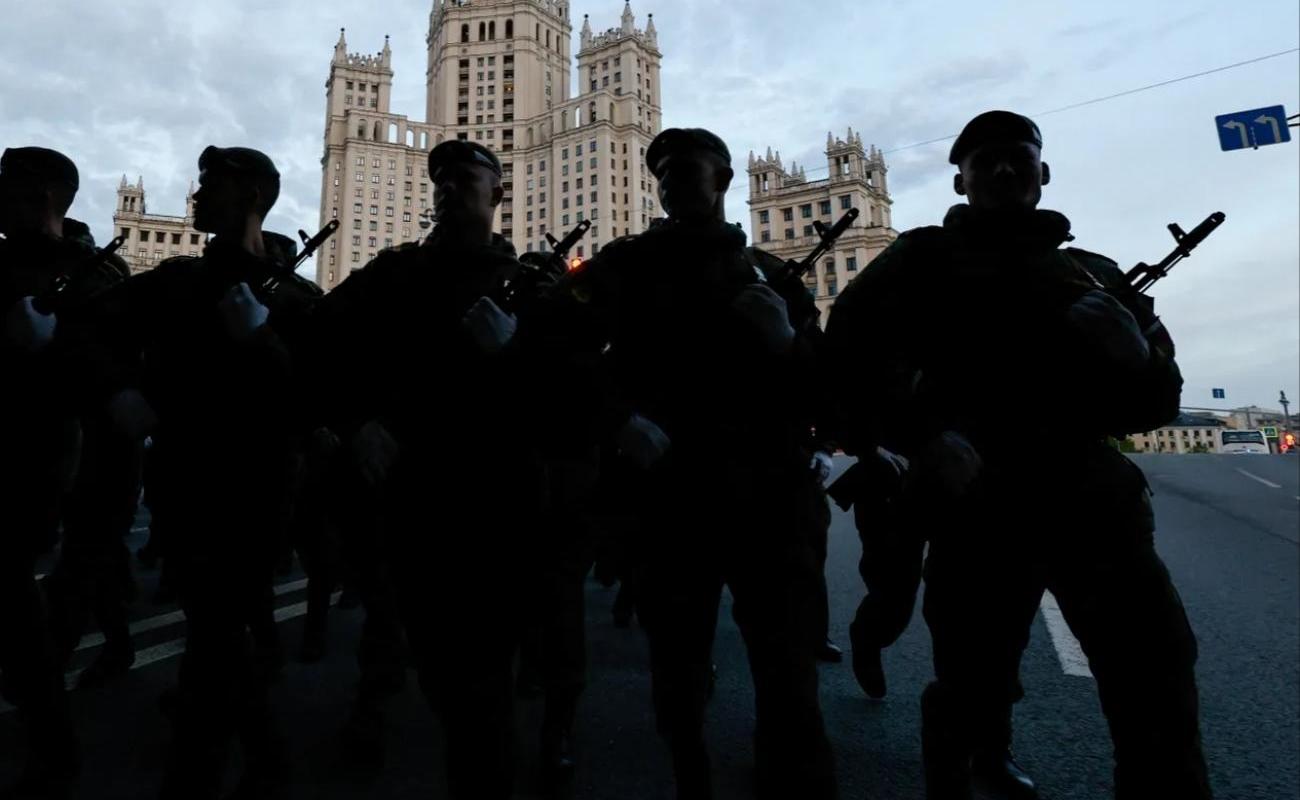‘Expect more violent crime’ Russian state legal scholar issues rare warning that veterans returning from Ukraine pose a growing public safety threat

The war in Ukraine has begun to influence Russia’s crime rates, and the situation promises to grow worse in the coming years, including more violent crimes. This is the conclusion presented in a recent article by Villiy Maslov, an associate professor at the Internal Affairs Ministry’s Ural Law Institute in Yekaterinburg. The legal paper represents “a rare instance of an insider within the system analyzing the war’s criminal ramifications,” writes the BBC’s Russian Service, which first reported the article. Meduza reviews Maslov’s findings.
In his article, The Impact of the Special Military Operation on Crime in Russia, law professor Villiy Maslov analyzes conviction statistics from 2019 to 2023, drawing on data from the Supreme Court’s Judicial Department, Russia’s Federal Statistics Service, and the Federal Penitentiary Service. He writes: “It can be confidently stated that the ‘special military operation’ has already impacted every Russian citizen. […] Its continuation is already influencing the country’s criminal landscape and will inevitably exacerbate crime problems in the future.”
Challenges facing returning veterans
Maslov writes that repeat offenses by former inmates pose one of the biggest risks to public safety. The exact number of convicts pardoned for participating in the war is unknown. Maslov estimates their number ranges from several thousand to several tens of thousands — a “substantial number,” he says, that includes men convicted of grave and violent crimes. Maslov describes the release of convicted murderers as particularly troubling.
Maslov contends that recidivism among war-pardoned inmates is “only a matter of time,” due in part to a lack of targeted government intervention — from psychological services and employment assistance to housing support — necessary for social reintegration. Other reasons to expect repeat offenses, he argues, include seeking revenge for their past prison sentences, “loss of control over their actions” due to afflictions such as post-traumatic stress disorder or alcohol abuse, and the inability to earn an honest living.
PTSD may drive increases in criminal activity not only among former inmates but across the broader veteran population and even within their families. According to Maslov, additional education centers should be created to train qualified specialists to help military personnel and their families. “Absent adequate intervention with combat veterans, the authorities should expect more violent crime, including assaults and injuries. Particularly troubling is the potential for members of veterans’ households to engage in criminal conduct,” he warns.
Maslov contends that the state’s efforts to prevent these outcomes through the Defenders of the Fatherland Foundation “should be viewed positively.” Nevertheless, he observes, “it is not possible to say the foundation’s work meets the expectations of those who turn to it for help.” As evidence, he cites numerous negative assessments of the foundation’s work found on the social network VKontakte, the business review service 2GIS, and the content discovery platform Yandex Zen.
Russia’s crime rates may also increase because, after returning from the front, some soldiers are unwilling to take jobs where they would earn significantly less than in the army. Not everyone will turn to crime in pursuit of “easy money,” but a number of veterans have already been convicted of robbery and theft.
Another factor that could contribute to rising crime rates, says Maslov, is that veterans acquire skills in war that are “not especially in demand by the state in peacetime, but may be valued in the criminal world.” He specifically highlights the risk of more crimes involving the use of guns:
Given [soldiers’] acquired experience, the availability of weapons, escalating illicit firearms trafficking, and the transformation of moral-psychological frameworks among individuals subjected to combat stress conditions (including PTSD), we cannot rule out a rise in mass shootings and other mass killings using firearms.
In his article, Maslov also warns of a possible increase in telephone fraud targeting soldiers’ relatives to steal money and sometimes even coerce victims into arson attacks. This group is particularly vulnerable, he explains, due to their high anxiety levels and limited communication access to deployed family members. The BBC points out that Maslov only briefly mentions that soldiers themselves may also fall victim to scammers.
Maslov concludes his analysis by presenting conviction data for 2019–2023 that reflect an increase in the number of those convicted for fraud, rape, and disorderly conduct. Based on these statistics, he determines that Russia witnessed a rise in felony and aggravated felony offenses.
Concerns about Maslov’s numbers and other factors
Kirill Titaev, a researcher specializing in Russian law enforcement, told the BBC that Maslov’s conviction data can’t be trusted. Titaev emphasized the importance of incorporating statistics on registered offenses and victim surveys, which ask people about their experiences and whether they consider themselves the victim of a crime. He also urged taking a critical approach to Maslov’s claim that serious crimes are on the rise, noting that this category includes not only murders but also non-violent offenses, such as embezzlement involving abuse of office.
According to Titaev, Maslov failed to mention another problem that will also affect Russia’s crime rates: the shifting cultural perception of what constitutes morally acceptable behavior.
Despite two Chechen wars in living memory, Russians generally considered it abnormal as recently as five years ago to have experience killing other people, Titaev told the BBC. Today, judging by the media landscape, there’s a rapid normalization underway of violence and killings linked to the war. Propaganda and political repression will render combat experience a mitigating factor for criminals, complicating matters for victims and making it harder to bring cases to court.
